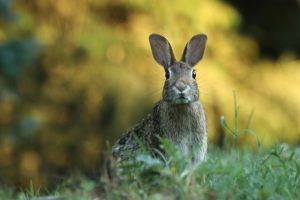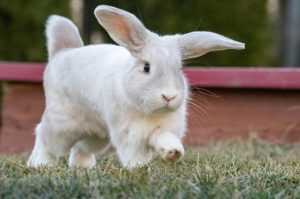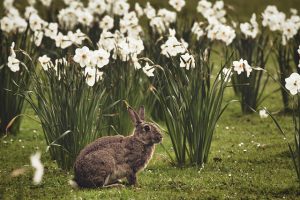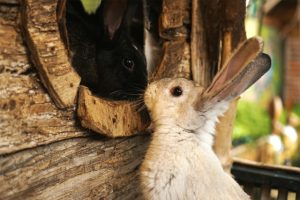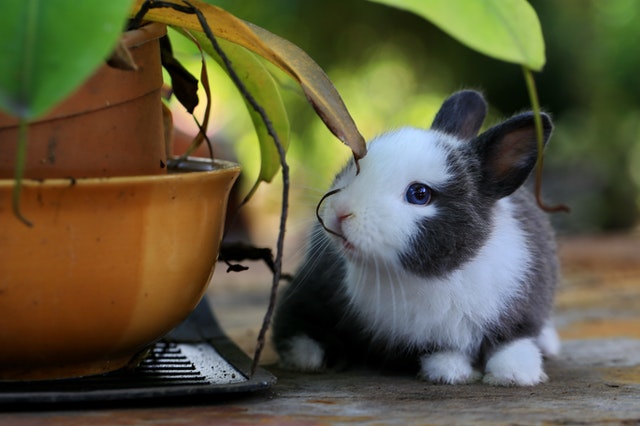
So you decided to get yourself or your kids a small pet and have narrowed down the choices to a rabbit or guinea pig, hopefully, this will help you decide. Both are cute little animals that can give you or your family some companionship and joy. Both of them are classified as herbivores as they eat only plants. So, that means they will eat similar types of food, however, they don’t eat the same amount of food daily. We will discuss more food a little later in the article.
Contents
Room for a cage
Guinea pigs generally take up less space than rabbits. They both need an area within the cage for sleeping and playing. You should have at least an 8 square foot cage for a guinea pig or about 10 square feet if you get a pair (more on that later). Rabbits on the other hand need quite a bit more room, a rabbit will need about 8 square feet for sleeping and eating and another 20 square feet for playing since they move around a lot more, are larger, and are mostly active at night.
Playtime
Both guinea pigs and rabbits require playtime. Generally, guinea pigs will play anywhere from 2 to 4 hours a day, with or without interaction from you. Rabbits on the other hand depend a lot on their mood, they can play anywhere from 15 minutes if they are being moody up to 5 hours.
Playtime can include in or out of the cage. You can set up a time you take them out of the cage to play and interact with them but they have to be watched carefully as they can get into mischief if you are not watching them. There will be times when you just do not have time to take them out to play, this is why having a large enough cage is important, especially in the play area.
Both are highly intelligent and will learn their names in time and will show affection during your interactions with them. Guinea pigs are known for giving little kisses and rabbits will nudge you with their nose, similar to a cat. If you have a really good bond with your rabbit, they might even cuddle up to you. Rabbits also tend to attach themselves to their owners more than guinea pigs do.
Sleeptime
Guinea pigs and rabbits have very different sleeping habits. Rabbits are more nocturnal and therefore they tend to be awake at night. Guinea pigs on the other hand tend to sleep in shorter bursts.
Guinea pigs do not sleep much or for long, which may explain the difference in lifespan. Guinea pigs only sleep for about 20 minutes at a time. It’s like they are only taking multiple naps throughout the day and night. If you get one, you will eventually learn their pattern, but they generally sleep for about 20 minutes at a time and that can be at any time throughout the day.
Rabbits, however, will generally sleep for about 6 to 8 hours in the morning hours. They do not sleep at night and will be up playing all night long. You will not be getting your morning cuddles before you go off to work with a rabbit.
Feeding requirements

When it comes to feeding smalls like rabbits and guinea pigs it is very important to ensure that they are getting a balanced diet. Since they both are herbivores they need plenty of plant-based foods. They both should have an ample amount of water that is available all the time. Below is an idea of what the optimum diet is for both rabbits and guinea pigs.
Rabbits - To ensure that they are getting the right amount of nutrients you need to be sure that they are getting these three types of foods; dry food, hay, and fresh food. Hay or grass should make up the bulk of your rabbit's food. Consult the pet store for a good choice of dry pellets to feed your rabbit. It will ensure that it gets the right amount of vitamins and minerals. Lastly, you should give them leafy green vegetables for added nutrients.
While fresh veggies and fruits are good for rabbits, you need to know that some of them are not good for them. We included a list of them that are considered toxic to your rabbit and should be avoided.
- Meats
- Eggs
- Dairy products
- Nuts and nut products
- Grains
- Iceberg Lettuce
- Carrots (carrot tops are good)
Guinea pigs - A guinea pig’s diet is very similar to that of a rabbit, it eats mostly hay and grasses. It also likes to eat dry pellets that you can get from the pet supply store. To ensure that it gets the right amount of nutrients you should offer them fresh veggies which include; Kale, Romaine Lettuce, and carrots. However, like most animals, a guinea pig cannot eat all types of foods. Below is a list of some of the things that are considered toxic to guinea pigs:
- Chocolate or anything that contains caffeine
- Onions
- Avocados
- Garlic
- Mushrooms
- Potatoes
- Iceberg Lettuce
- Nuts
- Seeds
- Peanut Butter
- Meats
- Bread
- Dairy products
Cleaning Habitat
With both guinea pigs and rabbits, you will need to clean their cages daily. While cleaning the cage daily may seem like a tasking chore, it is needed because they eat, sleep and play in the cage and they do go to the bathroom a lot. If you do not clean the cage daily, it will smell and it is not just a little smelly.
Rabbits can and have been litterbox trained, so that can keep the mess and smell at bay a bit more, but daily cleaning is still a must. Another reason to keep the bedding dry is that they have to sleep in the same place where they go to the bathroom.
Noise/Communication
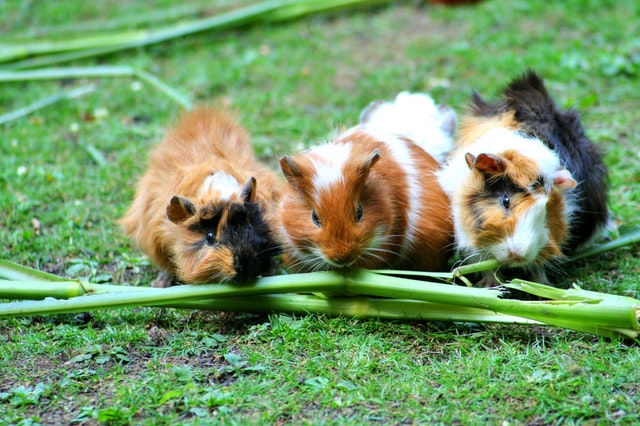
Neither guinea pigs nor rabbits are considered noisy creatures. Yes, they do make sounds, but the sounds they use to communicate with you are generally small, quiet sounds, although guinea pigs will be more vocal with you than a rabbit. Both can be very loud if they are scared by something, but most of the time they are considered fairly quiet animals.
Spaying/Neutering
This is not a question that comes up often, but do guinea pigs and rabbits need to be spayed or neutered? There are definite reasons why you should or should not have your rabbit or guinea pig spayed or neutered. We came up with some reasons why it would be recommended to have them spay or neutered.
Reason #1 Altered rabbits have been proven to be much healthier than non-altered rabbits. Studies have shown that when not being altered female rabbits are more likely than not to develop cancers. Altered male rabbits tend to live longer than non-altered male rabbits. This is believed to be because altered male rabbits are less aggressive and tend to avoid fighting with other animals.
Reason #2 After being spayed or neutered, rabbits tend to make better companion animals. They tend to be much calmer after the surgery. They tend to be less aggressive and destructive after the surgery.
Reason #3 Altered male rabbits no longer need to spray to mark territory. Both male and female rabbits are far easier to train and handle after they have been spayed or neutered.
Generally, guinea pigs do not need to be spayed or neutered unless there is a medical problem or you have a pair that you do not want to have a litter of babies. It is important to know that neutering a male guinea pig will not alter its behavior. If it was aggressive toward other males it will remain aggressive and it will not make it less sexually active towards female guinea pigs. Also spaying a female guinea pig is considered very difficult and not all dog and cat-type vets don’t generally have the right experience to spay a guinea. You will need to consult an exotic vet and they will be able to take care of it.
Lifespan
Since a time commitment is needed, you need to plan for how long you will have your new pet. The better you care for your pet the longer they will live but they still have an average lifespan.
Guinea pigs generally live between 4 and 8 years if they are well taken care of; they also do better if they are gotten in pairs. Different breeds have different lifespans which are why there is such a large disparity in lifespan.
Rabbits generally have a longer life than guinea pigs, their average lifespan is between 7 to 11 years. Again, the breed makes a difference in the lifespan, but the average is 7 to 11 years as long as they are well taken care of.


